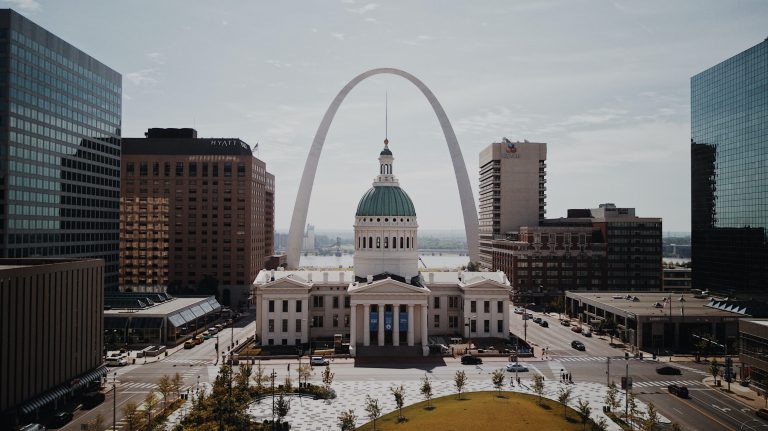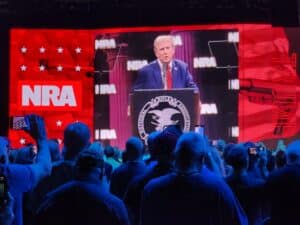Missouri’s unique “Second Amendment sanctuary” law has come under new scrutiny.
The Missouri Police Chiefs Association (MPCA) wrote a letter to leaders in the state’s Republican-controlled General Assembly last month asking for changes to the recently-enacted Second Amendment Preservation Act (SAPA). The law’s current language, they argue, is overly vague and restricts the ability of local police departments to conduct standard criminal investigations for fear of civil penalties.
“It is our desire to protect the rights of ALL Missourians while protecting officers from frivolous civil litigation related to the continued joint endeavors with our federal partners,” the letter said. “We look forward to working with you and your fellow lawmakers to address some clarifications in the law and eliminate those unintended consequences without derailing the intent of SAPA.”
The law has been a lightning rod for controversy since its inception earlier this June. It faced spirited opposition from Missouri Democrats during the legislative process. It also drew immediate fire from President Biden’s Department of Justice, who helped support a lawsuit attempting—but ultimately failing—to block the law before it went into effect in August. Now under the urging of local law enforcement, amid a wave of rising violent crime, the law could face its toughest challenge yet.
Thus far it is unclear whether or not Missouri Republicans will consider changes to the law. Governor Mike Parson (R.) previously expressed a willingness to work with local law enforcement on clarifying the law.
“I think that there’s things out there we can correct,” he said. “I think we need to do a little better job making sure we’re out here talking to law enforcement, understanding the everyday issues they’re facing.”
However, other state lawmakers, including the bill’s sponsors, have been less amenable to such changes.
“I’m not even willing to consider that at this point,” Missouri State Representative Jered Taylor (R.), the bill’s sponsor, told 60 minutes earlier this month.
The bill was passed in the midst of the Second Amendment sanctuary movement, which has seen localities and states across the country adopting various laws prohibiting the enforcement of certain gun restrictions within their jurisdictions.
Missouri is currently one of 17 states with such a law, though its statute contains some unique enforcement provisions not found in other states.
The Missouri law, which prohibits local police from cooperating with the federal enforcement of gun laws, was proposed as a bulwark against any future gun legislation from the Biden administration.
The bill’s text says “all federal acts, laws, executive orders, administrative orders, court orders, rules, and regulations, whether past, present, or future, that infringe on the people’s right to keep and bear arms as guaranteed by the Second Amendment…must be invalid in this state.”
However, the bill goes further by allowing private citizens to sue local officials who cooperate in the enforcement of federal gun control for up to $50,000. It is this component, law enforcement officials say, that has caused confusion over the law’s scope and has resulted in police pulling back.
“I could tell you for a fact that two of the police officers that were sued over the Second Amendment Preservation Act in Ripley County told me that as soon as they can retire, they will,” Kacey Proctor, a Missouri prosecutor, said in an interview. “They’re tired of this stuff. I’m afraid that we’re gonna make it so difficult to be a police officer in this country that nobody’s gonna wanna do it.”
State lawmakers remain skeptical of the concerns raised by certain law enforcement officials.
“I am aware of the Police Chiefs Association concerns about SAPA,” Missouri House Speaker Rob Vescovo (R.) told the Kansas City Star. “I am also aware of other law enforcement individuals and groups who believe SAPA shouldn’t be changed. At the end of the day, we will always protect the Second Amendment, defend the constitutional rights of all Missourians, and ensure law enforcement has the tools necessary to do their job effectively.”
MPCA Executive Director Robert Shockey did not respond to a request for comment.






